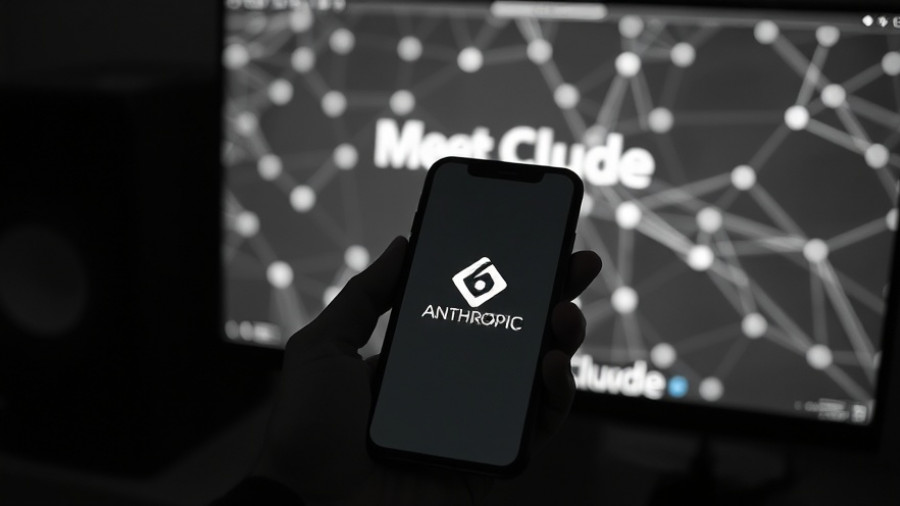
Claude AI’s Dynamic Skill Upgrade: A Game-Changer for Workflows
In an era where efficiency defines success, the launch of Claude AI's latest feature—Skills—is set to revolutionize how teams manage workflows. Anthropic, the company behind Claude, has introduced this powerful capability designed to tailor AI input to specific task requirements, thereby streamlining processes across various sectors.
What Are Skills and How Do They Work?
Skills are modular folders that contain instructions, code scripts, and resources that Claude can load during relevant tasks. This functionality allows users to craft packages of expertise specific to their workflow, making Claude not just a generic AI assistant but a highly specialized tool. By utilizing a method called progressive disclosure, Claude can intelligently determine which skills are relevant, loading only the necessary information to enhance efficiency.
This contrasts sharply with previous methods of customizing AI assistants, such as prompt engineering, offering a deeper and more sustainable solution for businesses. For instance, a finance team can set up a skill to generate reports using established templates, resulting in considerable reductions in completion time—from an intensive day-long process down to mere hours.
Real-World Applications of Skills
Organizations are already seeing substantial benefits from using Skills. For example, global e-commerce giant Rakuten has implemented Claude to transform their financial workflows, achieving an impressive eightfold increase in productivity. Similarly, design platform Canva plans to leverage Skills to enhance workflow personalization, further showcasing the potential of Claude in creative settings.
Essential Features of Claude Skills
One of the standout features of Skills is its composability. This allows multiple skills to work in harmony. For instance, if generating a quarterly review presentation, Claude could simultaneously use skills related to design guidelines and data analysis, thereby effortlessly coordinating various workflows without human intervention.
Additionally, Skills are built with portability in mind, meaning that once created, they can be utilized across all Claude platforms—including API calls, Claude Code, and more. This element of coherence significantly boosts efficiency, allowing organizations to develop a skill just once and employ it across different applications.
Potential Challenges and Considerations
However, with great power comes great responsibility. The capability for Skills to execute code prompts organizations to consider essential security factors. Anthropic has implemented administrative controls, enabling organizations to manage access to these functionalities; users must also ensure they only incorporate trusted skills to mitigate risks.
Enterprises need to weigh the tremendous potential of Skills against potential security breaches and compliance issues that arose from previous AI rollouts.
Looking Ahead: The Future of AI Workflows
The introduction of Skills signifies a shift towards customizable AI that adapts to specific business naturalities rather than providing one-size-fits-all solutions. As organizations experiment with this innovative feature, it's expected that we will see a rise in specialized workflows that can efficiently leverage AI's capabilities. Industries such as healthcare, education, and finance are poised to benefit from the tailored utility that Skills provide.
As the technology evolves, and as Anthropic develops its Skill deployment practices, organizations globally will need to navigate this landscape, balancing innovation with governance and security to create productive AI partnerships.
 Add Row
Add Row  Add
Add 




Write A Comment